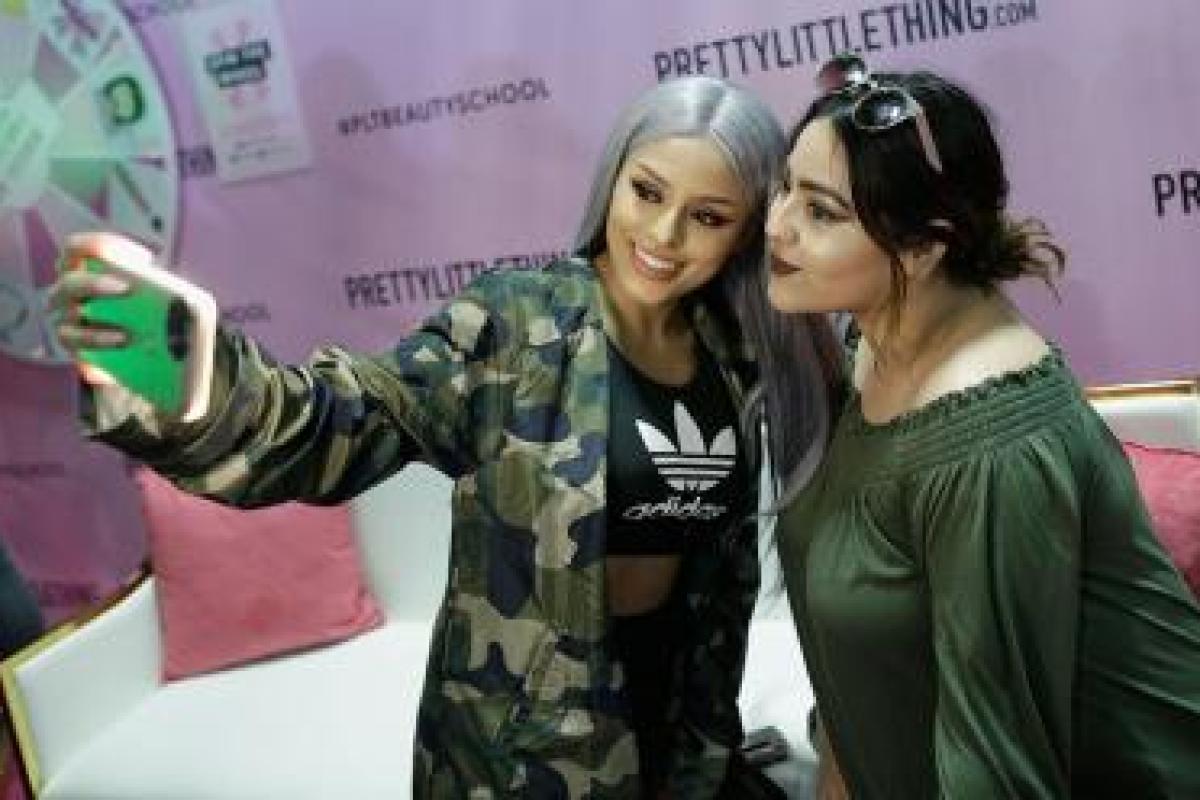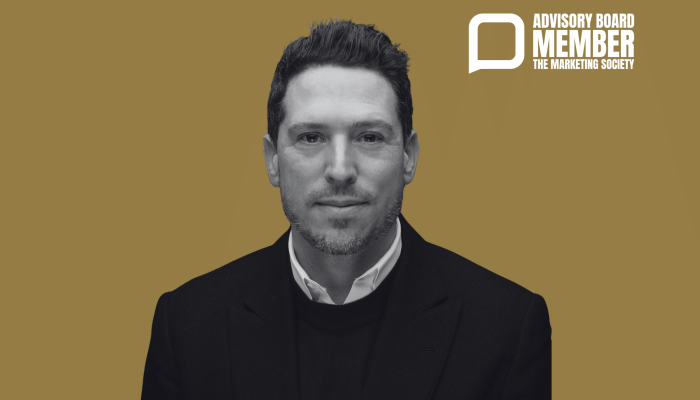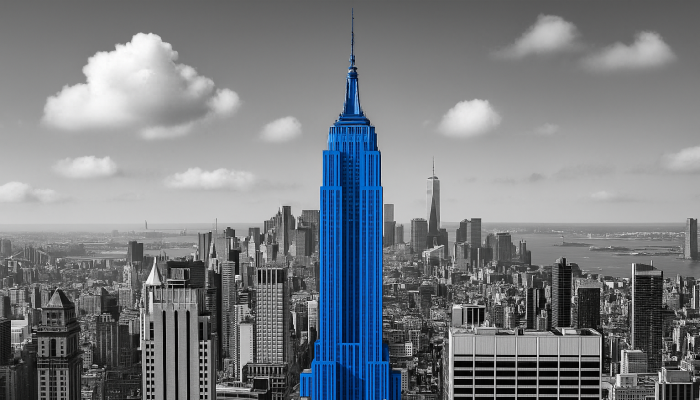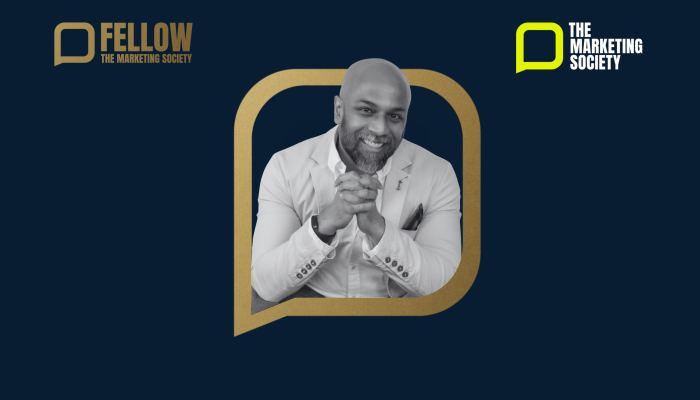On May 20, beauty fans descended on Brooklyn Cruise Terminal for Beautycon. The one-day-only festival combines experience culture, influencer meet-and-greets, beauty tutorials and product samples for today’s buzziest consumer-facing beauty event.
Now in its fourth year, Beautycon NYC has grown to include three times as many brands as last year. Panels and meet-and-greets offered a stacked roster of celebrities that included YouTuber Gigi Gorgeous, Gabrielle Union, Drew Barrymore, the founders of January’s Women’s March and more.
Beautycon festivals have proved irresistible to generation Z and millennial beauty fanatics, a highly-sought-after yet fickle demographic. They are even shaping the way a new generation shops: According to a new survey from Beautycon and Trendalytics, 12% of 13- to 18-year-old beauty junkies said festivals were their most important source of information when looking for new products.
Beyond festivals, this “IRL and URL” brand also offers a digital content platform and a subscription box. At the festival, CEO Moj Mahdara sat down with JWT Intelligence to discuss generation Z consumers, cult brands, and the future of the beauty industry.
What accounts for Beautycon’s success?
There’s a quote that says, “Luck is when preparedness meets opportunity.” We are, as a team of people, very into culture, experiences, and brands. There was just something massive missing for this audience. Who’s really focused on creating a platform for young women and people to feel amazing about themselves? And to enjoy being freaks, and enjoy being expressive.
We are super intuitive and we pay attention to our audience. We’re obsessed with what they want. We ask them in a hundred different ways: surveys, questionnaires, interviews, focus groups. So we’re close to our audience.

You work very closely with generation Z. What is your favorite thing about this demographic? How have their values shaped the festival?
They’re articulate, and they put their money where their mouth is when they love something. We’re dealing with the most communicative, demanding, passionate generation. They do feel like they created and own Beautycon—and rightfully so. We work for this audience. This is the fandom, and our job is to give them the best content and product and IRL experience as we can out there. A lot of what you see here are things that they’ve suggested and given us feedback on.
In terms of reaching generation Z, where are retailers succeeding? Where are they missing the mark?
This generation is the first mobile-first generation. They’ve grown up with a front-row seat to world happenings and world issues. We’re talking about a very global audience. Someone may live in Texas or Detroit and they still have a global awareness. I think they’re incredibly woke, in terms of what goes on around them: the environment, nature, political issues.
Direct-to-consumer beauty brands are doing an amazing job, because they’re telling the story of their brand with content. It’s not overly manufactured; it’s really original. There are so many that have done a great job. There’s Lime Crime and ColourPop, and what Kylie has done, and what NYX has done. These are cult brands at this point that are, in their own right, celebrities.

In a talk at SXSW, you spoke about diversity in this generation. Can you talk about how Beautycon addresses that?
As a gay Persian-American woman, it’s weird if I did not program from the point of view of including everyone. The facts are, 2015 was the final year that people were born into a primarily Caucasian world. More than 70% of our audience is ethnic and diverse in background. It’s just a global representation of what the world is now. It’s insane to think that a beauty brand could ever represent themselves without representing a global footprint, at this point.
I don’t think there’s anyone else like us, doing what we’re doing. And I don’t think we’re trying to “reach” this audience. We’re just creating really fun stuff that we think is amazing storytelling through experiences, events and content, and commerce. And there happens to be a very large audience for that. It’s to our benefit that people have written off millions and billions of people on this planet, who happen to just be different.
So, how do we think about it? We program the festival like the world is programmed. We program the content like the world is programmed. We think beauty comes in all shapes and sizes. Essentially, we’re for everyone. So if we’re for everyone, then we should become massive.
I’m really proud of the art that we brought into the festival this time. I’m proud of the representation of culture and politics, and the women’s march, and our friend Elaine [Welteroth] at Teen Vogue, [who moderated a panel on beauty and politics]. I’m happy to see Gabrielle Union talk about what’s new with her. I think there’s just a lot of amazing content here.
Which beauty trends are you watching?
People are looking at higher-end, prestige products, finding out the ingredients and the formulas, and then finding the cheaper version. That is super interesting. That’s something that people are doing.
Ethnic differences, in terms of beauty. Whether that’s skin tone or hair type or gender presentation, it’s very interesting. I think the [gender] fluidity is also a pretty awesome thing. It’s really going to shake up gender norms.

If you had to predict where the beauty industry would go next, what do you see?
The fragmentation will continue to happen. You have a contouring industry that’s growing at the same time as the no-makeup makeup industry is growing. There really are multiple voices within this conversation now, and I think that’s going to continue to be. You won’t see Shea Moisture in the African-American beauty aisle anymore; it will just be in the beauty aisle. Brands will start to feel ashamed of doing things like that.
Overall, you’ll start to see more customization. You’ll start to see more technology and AI around what preventative products I should be using. You’ll get better recommendations on what your SPF should be for that date. Are you dry? Are you oily?
The consumer is set up to have a really awesome experience, because brands are intent on connecting with them right now since there are so many voices coming at the consumer. You’ll see more and more indie brands, for sure. And then I think you’ll see more and larger brands acquire these indie brands.
Beauty was such an exclusive, only-for-the-elite industry. And now it’s become this experience. It’s become something that everyone actually has a tangible access to. People are still interested in fantasy, but they’re not necessarily interested in perfection. That is a very different mindset to think about.
How big a role does YouTube play in that?
YouTube, Instagram, Snapchat, Facebook, Musical.ly, ModiFace. Sephora has a place in that, and the culture they’ve created within their retail locations. I think the local drugstore is now playing a part in that. The products that you can buy right now that are $25 and under are amazing. As opposed to the world where everything was $50+.
What’s next for Beautycon?
These festivals are at a tipping point. We decided to just go very big into LA, New York and London. We’ll do an Asia date next year. We’re launching a lot of new content formats this year: Self-care Sundays, tutorials, The Beauties. Our new head of content Elyssa Starkman is incredible.
We’re passionate about the distributed model of social platforms and publishing to those places. And we’re rolling out a couple of really exciting new commerce formats that are playing with content and playing with product development and limited-edition products.
This article originally appeared on jwtintelligence.com



